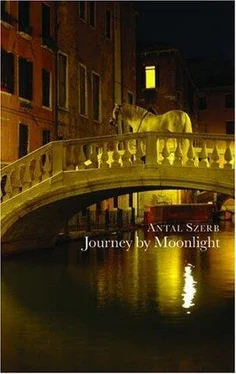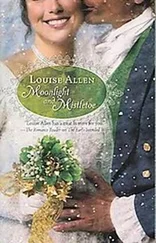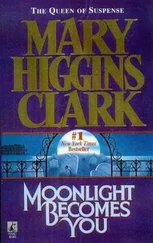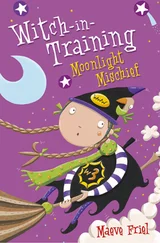“There was a lamp burning in the room, but no furniture apart from two armchairs. On the walls pictures, rugs hanging everywhere, every sort of worthless old-fashioned lumber. I sat down rather hesitantly in one of the armchairs and prepared to wait. Meanwhile I kept glancing restlessly about me, because I was quite sure something very strange was happening.
“I don’t know how long I had been sitting like that, when suddenly my heart began to knock horribly, because I had realised what I had unconsciously been looking for. From the moment I entered this room I had had the feeling that I was being watched. Now I had found who it was. On one of the walls hung a Japanese rug, depicting various sorts of dragon and other fantastic animals, and the eyes of these animals were made of large coloured-glass buttons. I now saw that one of the animals had an eye that wasn’t glass, but a real eye, and was staring at me. Presumably someone was standing behind the rug looking at me.
“In any other circumstances it would have seemed to me like something out of a detective novel. You read so much about foreigners vanishing in London without trace, and this seemed just the sort of start you would imagine for such a story. I tell you, the natural thing would have been for me to panic, suspect criminal intent, and put myself in a defensive posture. But I didn’t. I just sat there, stock-still, frozen with terror. Because, you see, I recognised the eye.”
“What do you mean?”
“That eye was the eye of a friend of my youth, a certain Tamás Ulpius who died young in tragic, although rather unclear, circumstances. For a few moments my fear was suspended, and a sort of pallid ghostly happiness filled me, a sort of ghost of happiness. I called out, ‘Tamás,’ and wanted to rush over to him. But in that instant the eye vanished.”
“And then?”
“Properly speaking, that’s all there was. But what happened next is quite inexplicable. An old lady came into the room, a strange, old-fashioned, repulsive, large-eyed woman, and with a fairly expressionless face asked me something. I didn’t understand, because she wasn’t speaking English. I tried her in French, German, even Hungarian, but she just shook her head sadly. Then she said something in a strange tongue, with much greater expression, besieging me with more and more questions. I listened hard, if only to try and catch what language she was speaking. I have a good ear for languages, especially those I don’t speak. I decided that what she was talking was not Latinate, Germanic, or Slav. It was not even Finno-Ugric, because I had studied Finnish at one stage at university. And then suddenly I just knew that she was the only person in the whole world speaking that language. Where that idea came from, I really don’t know. But I was so horrified I jumped up, rushed out of the room and back home.”
“And how do you explain it all?” asked Ellesley.
“I can think of no other than that it was November. I had got into that house through some strange random mistake. Our lives are full of inexplicable coincidences … ”
“And the eye?”
“The eye was surely in my imagination, an effect of the situation I was in and the London November. Because I am unshaken in my belief that the dead are dead.”
HIS TIME was up. Mihály was well again and due to leave the hospital. No thief released after twenty years’ prison could have felt more cut off from everything, or more devoid of purpose, than Mihály did when, with his little suitcase (his only possessions were the few frugal purchases he had put together on the day of his escape) he made his solitary way between the low-roofed houses of Foligno.
He was in no mood to go home. It would have been impossible to appear among his family after his desertion, which he would be unable and unwilling to explain. And he could not bear the thought of returning to Pest, going in to the office, involving himself in the firm’s business, and relaxing over bridge and small talk.
He still had so many Italian cities to see. They would surely have so much for him to discover. He decided to write home and ask for money.
But he put off the business of writing the letter from one day to the next. He had so far remained in Foligno to be near Dr Ellesley, the only person with whom he had any connection, however slight. He took a room, where he lived quietly, read the English novels the doctor lent him, and enjoyed his lunches and dinners. Food was the only thing that tied him to reality in those blank days. He loved the undisguised sentimentality of Italian cooking. Conventional French-European cuisine approves only subtle, subdued, qualified flavours, like the colours of men’s suits. The Italian loves intense sweetness, extreme tartness, strongly distinctive aromas. Even the huge servings of pasta could be seen as an expression of this sentimentality.
One evening he was sitting with Ellesley outside the main coffee-house of the town. As usual they were speaking English. Suddenly a young girl approached, addressed them in an American accent and joined them at the table.
“Please excuse my troubling you,” she said, “but I’ve spent the whole day wandering around this godforsaken town and found no-one I could communicate with. Can you please explain something? It’s the reason I came here. It’s very important.”
“We are at your disposal.”
“You see, I’m studying art history at Cambridge.”
“Ah, Cambridge?” cried Ellesley with delight.
“Oh yes, Cambridge, Massachusetts. Why? Did you graduate there?”
“No. I was at Cambridge, England. But how can we be of service?”
“Well, I’m studying art history and I came to Italy because, as you probably know, there are lots of great pictures here they don’t have anywhere else. And I’ve seen everything.”
She took out a little notebook, and continued:
“I’ve been to Florence, Rome, Naples, Venice, and a whole lot of other places whose names I can’t read just now, the light’s so bad here. The last place was Per … Perugia. Did I say that right?”
“Yes.”
“In the museum there I met a French gentleman. He was French, that’s why he was so kind. He explained everything beautifully, and then told me that I absolutely must go to Foligno, because there is a very famous picture there, painted by Leonardo da Vinci, you know, the guy who did the Last Supper . So I came here. And I looked for this picture the whole day and didn’t find it. And nobody in this revolting little bird’s nest can direct me to it. Would you please tell me where they hide this painting?”
Mihály and the doctor looked at one another.
“A Leonardo? There’s never been one in Foligno,” replied the doctor.
“That’s impossible,” said the girl, somewhat offended. “The French gentleman said there was. He said there’s a wonderful cow in it, with a goose and a duck.”
Mihály burst out laughing.
“My dear lady, it’s very simple. The French gentleman was having you on. There is no Leonardo in Foligno. And although I’m no expert, I have the feeling that there is no such picture by Leonardo, with a cow, a goose and a duck.”
“But why did he say there was?”
“Probably because cynical Europeans tend to liken women to these animals. Only European women, of course.”
“I don’t get it. You’re not telling me the French gentleman was playing a trick on me?” she asked, red-faced.
“You could see it that way, I’m sorry to say.”
The girl thought deeply. Then she asked Mihály:
“You aren’t French?”
“No, no. Hungarian.”
Her hand made a gesture of indifference. Then she turned to Ellesley:
“But you’re English.”
Читать дальше












